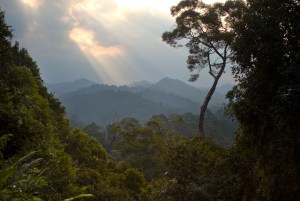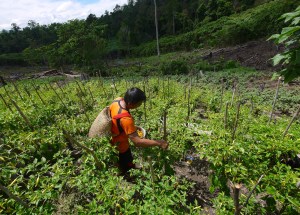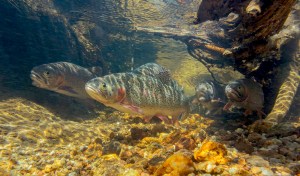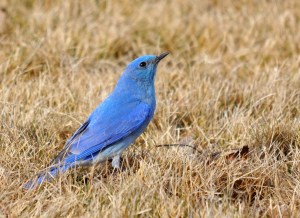Discover stories in Conservation Science
Recovery: Victories in Galápagos National Park
New hope for the iconic native wildlife of the Galapagos Islands.
Mapping Conservation & History on the Kokoda Track
A new 3-D map of Papua New Guinea’s famous Kokoda Track will help both preserve the country’s military history and protect the surrounding forest.
New Map Shows Hotspots of Species Under Threat
A new analysis identifies global hotspots where the most species are threatened by human impacts.
How Much Does It Cost to Save Tropical Forests and Prevent Climate Change?
New research directly compares, for the first time, how much carbon dioxide could be removed from the atmosphere by both tropical reforestation and deforestation.
Deforestation Exposes Rural People to Dangerous Heat Stress
Rural Indonesians are changing their behavior as deforestation creates increased local temperatures.
Recovery: The Once and Future Greenback Cutthroat Victory
The greenback cutthroat was lost and then found, then lost again. But now it’s back.
A New View of Bird Vision
New research shows that birds see more colors than you do.
Trees in the US Annually Prevent 1,200 Deaths During Heat Waves
High temperatures are often the greatest weather-related public health threat. Trees can help.
Can Migrating Birds Adapt To Climate Change?
Migratory birds are facing changing insect hatches and tree blooms. How can they adapt? And how can you help?
Collective Fishing Agreements Benefit Both Groundfish and Fishermen
Collective management charts a new path for California groundfish.
The Strange Sex Life of Freshwater Mussels
The mussel’s sedentary lifestyle presents, well, certain mating challenges.
Afield with the Gar Professor
Meet Solomon David, a “garnado” of enthusiasm for all things primitive fish.











